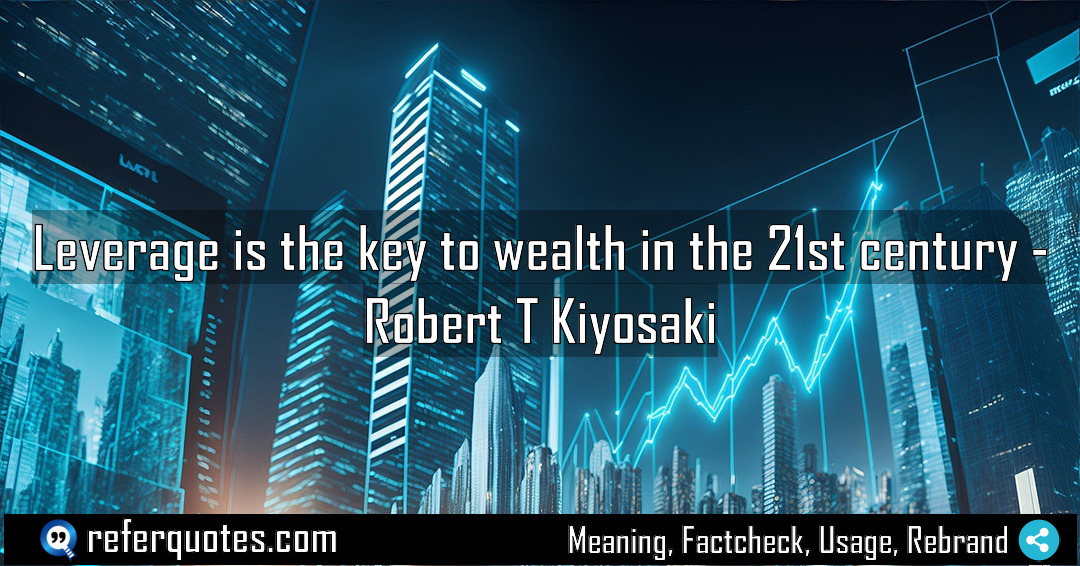Leverage is the key to wealth isn’t just a catchy phrase. It’s the fundamental shift in how you build assets that work for you, not the other way around. Let’s break down what this really means.
Share Image Quote:Table of Contents
Meaning
It means that using other people’s resources—time, money, or systems—is the most powerful way to amplify your own efforts and build significant wealth, rather than relying solely on your own labor.
Explanation
Look, I’ve seen this play out over and over. The old model was “work hard, save money.” And that’s fine, it’s safe. But it has a ceiling, right? Your time is the ultimate finite resource. Kiyosaki is talking about a different game entirely. He’s saying that true wealth in this century comes from strategic multiplication. You use a small amount of your own capital (leverage) to control a much larger asset, like a mortgage. You use other people’s specialized skills (leverage) to build a business faster than you ever could alone. You build a system that generates income 24/7 (leverage) while you sleep. It’s about making your ideas and your capital work exponentially harder. It’s the difference between pushing a car and turning the key.
Quote Summary
| Context | Attributes |
|---|---|
| Original Language | English (4148) |
| Category | Business (319) |
| Topics | growth (462), leverage (5), wealth general (32) |
| Literary Style | direct (446) |
| Emotion / Mood | assertive (3) |
| Overall Quote Score | 83 (343) |
Origin & Factcheck
This quote comes directly from Robert Kiyosaki’s 2010 book, “The Business of the 21st Century.” While the core “Rich Dad” philosophy has been around longer, this specific phrasing is firmly rooted in that text, published in the United States. You sometimes see it misattributed to other finance gurus, but the origin is definitely Kiyosaki.
Attribution Summary
| Context | Attributes |
|---|---|
| Author | Robert T Kiyosaki (152) |
| Source Type | Book (4761) |
| Source/Book Name | The Business of the 21st Century (56) |
| Origin Timeperiod | 21st Century (1995) |
| Original Language | English (4148) |
| Authenticity | Verified (4761) |
Author Bio
Born in Hilo, Hawaii, Robert T. Kiyosaki graduated from the United States Merchant Marine Academy and served as a Marine Corps helicopter gunship pilot in Vietnam. After stints at Xerox and entrepreneurial ventures, he turned to financial education, co-authoring Rich Dad Poor Dad in 1997 and launching the Rich Dad brand. He invests in real estate and commodities and hosts the Rich Dad Radio Show. The Robert T. Kiyosaki book list spans personal finance classics like Cashflow Quadrant and Rich Dad’s Guide to Investing, along with educational games and seminars.
| Official Website | Facebook | X| Instagram | YouTube
Where is this quotation located?
| Quotation | Leverage is the key to wealth in the 21st century |
| Book Details | Publication Year/Date: 2010; ISBN/Unique Identifier: 9781612680796; Last edition: 2011; Number of pages: 160. |
| Where is it? | Chapter 4: The Power of Leverage, Approximate page from 2011 edition |
